Skip to content










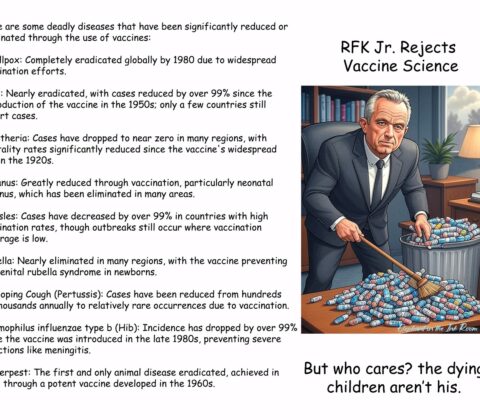

1. Slashed ~10,000 HHS jobs
2. Dismantled CDC immunization advisory board
3. Revoked COVID‑19 vaccine recommendation for children & pregnant women
4. Prompted mass resignations from FDA officials
5. Established the ‘Make America Healthy Again’ (MAHA) Commission
6. Promoted food‑related initiatives for Medicaid & Medicare beneficiaries
7. Public approval is low
Why These Moves Spark Controversy
Summary: What He’s Done Since Entering Office up to 7/7/2025
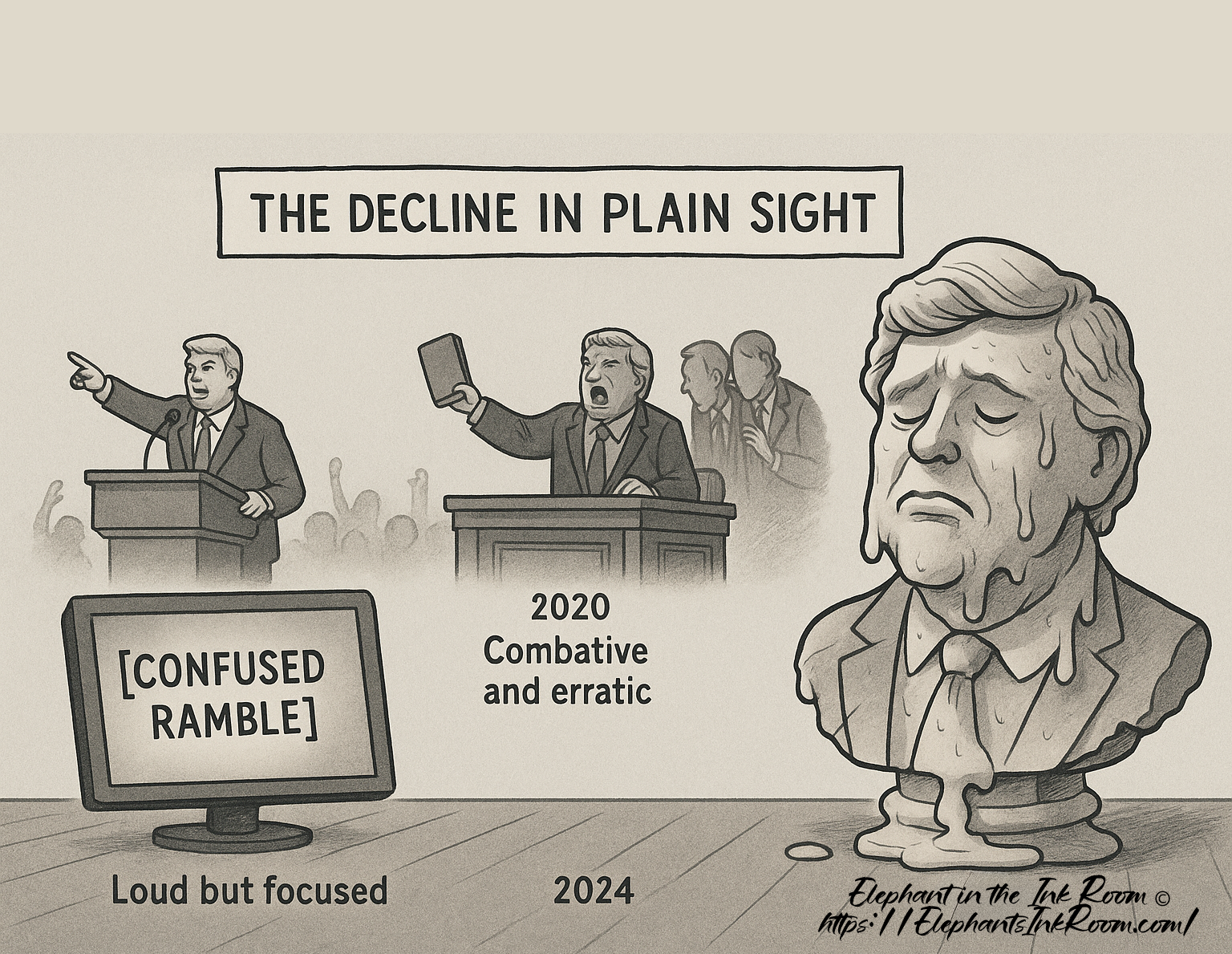
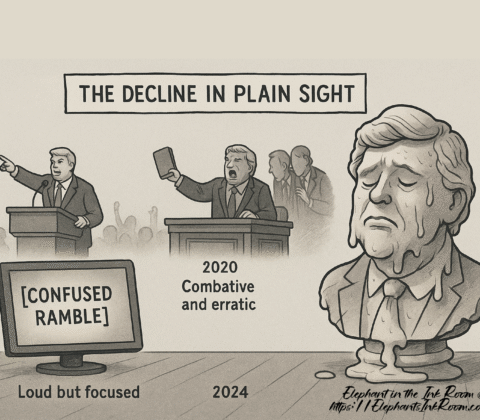

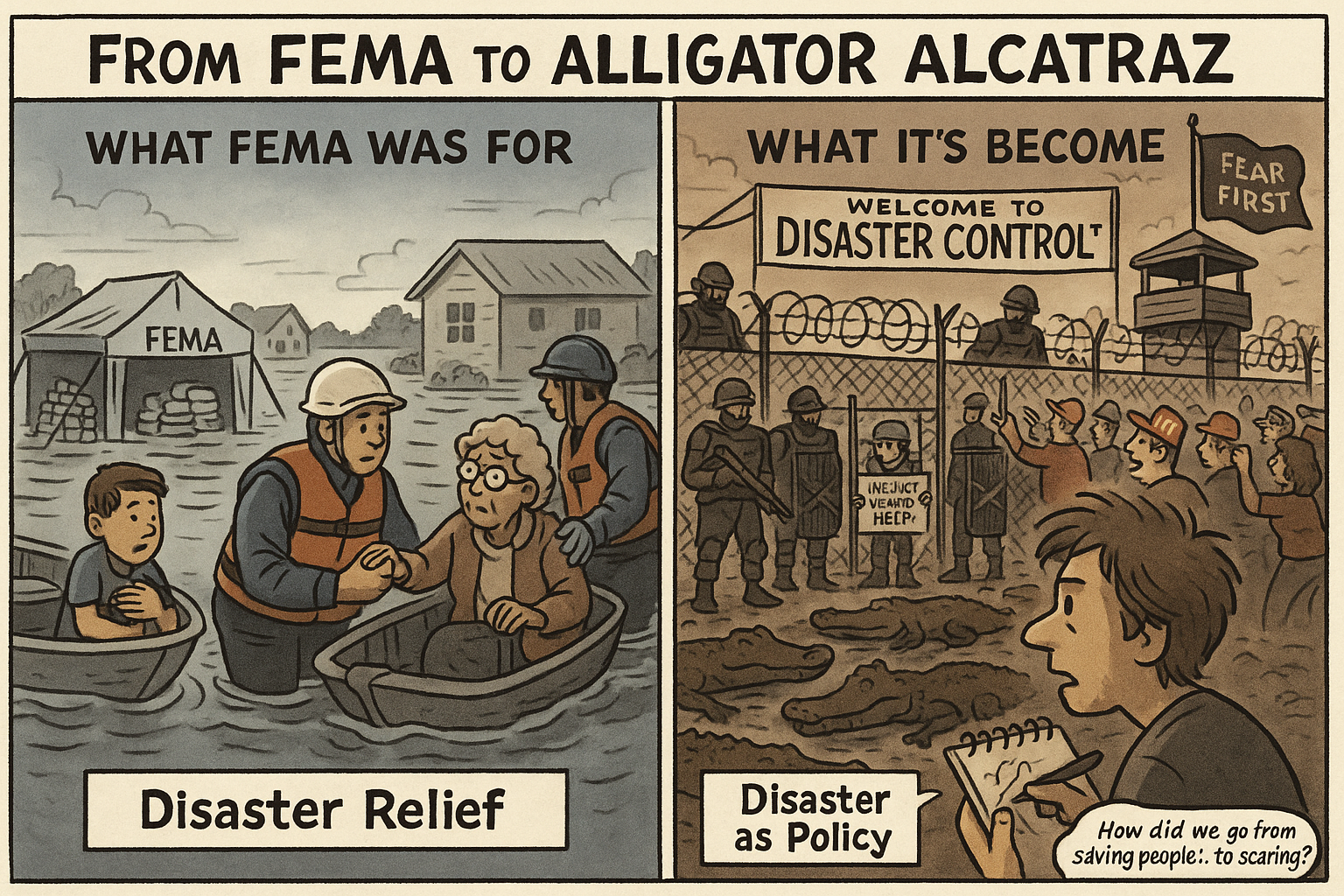
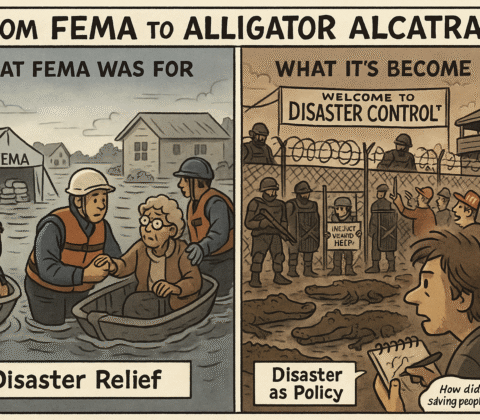




Because in much of the world, our ability to help is not a symbol of power.






Posts in Category: The Fallout


Promises and Prescriptions: The Reality of Veterans’ Healthcare in Trump’s Second Term
On
- Commentary, The Fallout

/
RSS Feed
Veterans’ healthcare has always been a sacred pledge — a promise exchanged for sacrifice. But in Donald Trump’s second term, that promise is being reshaped, repackaged, and, in some cases, quietly outsourced.
Trump’s rhetoric remains bold: “No one has done more for veterans than me.” But behind the slogans, a different reality unfolds — particularly for those living in rural America, where access to quality care is already a logistical challenge. Under the guise of “freedom of choice,” the Trump administration has accelerated a shift toward privatization, outsourcing more care to the private sector. That sounds good — until you realize that for many veterans, especially in underserved regions, it means longer waits, fewer specialists, and an increased reliance on providers who don’t fully understand the VA system or military-related conditions.
The expanded use of private clinics through the VA Mission Act (initially passed in 2018 but dramatically expanded during Trump’s second term) has created what critics call a “two-tiered system.” The best care remains in VA hospitals, but the funding and resources are quietly being drained away — diverted to private providers whose oversight is looser and whose outcomes vary.
Rural veterans — those who arguably need the most consistent and integrated care — now face a fractured healthcare network. Many have to drive hours, not to the nearest VA hospital, but to a private clinic that may or may not accept them. If they don’t like the care? Tough. The much-touted “choice” is often an illusion.
Meanwhile, Trump’s political allies paint the issue in black-and-white terms: government care bad, private market good. But this ignores a fundamental truth — the VA system, for all its flaws, was built to treat the unique health challenges of veterans: PTSD, burn pit exposure, prosthetics, military sexual trauma. These aren’t routine ailments, and generic civilian care doesn’t cut it.
To make matters worse, partisan messaging has drowned out nuance. Anyone who criticizes the shift is branded as “anti-veteran.” But if honoring veterans means more than applause at rallies, we must ask: what kind of system are we building, and for whom?
Ironically, some of the loudest voices calling for the privatization of the VA have never served. And some of the most outspoken defenders of the VA — doctors, nurses, and veterans themselves — are struggling to be heard above the political noise.
In Trump’s second term, the battle for veterans’ healthcare isn’t just about clinics and co-pays. It’s about priorities. Do we value loyalty to slogans, or loyalty to those who served? Do we want a healthcare system that rewards political donors, or one that keeps its promise to the people who wore the uniform?
Veterans didn’t ask for this ideological experiment. They asked for care, dignity, and respect. It’s time we deliver.


Canceled Kennedy Center Shows, 1st 6 months of Trump Taking the Center Over.
On
- Commentary, The Fallout

/
RSS Feed
Since President Donald Trump took over as chairman of the John F. Kennedy Center for the Performing Arts in February 2025, at least 26 shows have been canceled or postponed, as reported by the Kennedy Center in a statement released on March 7, 2025. This list, described as a “complete account of program cancellations over the last six months,” includes 15 cancellations attributed to reasons unrelated to illness, availability, sales, or finances, with several artists explicitly citing Trump’s takeover as their reason for pulling out. Notable cancellations include:
-
Hamilton, a Tony- and Pulitzer Prize-winning musical, canceled its 2026 run due to the “new spirit of partisanship” at the center.
-
Eureka Day, a play about the anti-vaxx movement, canceled due to “financial circumstances” shortly after Trump’s appointment.
-
Finn, a children’s musical with an LGBTQ+ subtext, canceled for financial reasons.
-
A Peacock Among Pigeons, a National Symphony Orchestra concert featuring the Gay Men’s Chorus of Washington, D.C., removed from the schedule during World Pride 2025, listed as a financial decision.
-
An Evening with Issa Rae, a sold-out show canceled by the actress citing an “infringement on the values” of the institution.
-
Low Cut Connie, a rock band, canceled their March 19, 2025, performance in protest of Trump’s leadership.
-
Fellow Travelers, an opera about gay government workers, withdrawn from the 2025–26 Washington National Opera season due to the takeover.
-
Les Misérables, where 10 to 12 performers boycotted a July 11, 2025, performance tied to a Trump fundraiser.
-
International Pride Orchestra’s Pride Celebration Concert, scheduled for June 4, 2025, canceled after Trump’s comments against drag shows.
-
Performances by artists like Louise Penny, Amanda Rheaume, Rhiannon Giddens, Peter Wolf, and Christian Tetzlaff, who cited ideological conflicts or Trump’s leadership as reasons for canceling.
The Kennedy Center’s statement claims cancellations since February 12, 2025, were due to low ticket sales or artist availability, but artists like Lin-Manuel Miranda, Issa Rae, and others explicitly protested Trump’s takeover, suggesting a mix of financial and political motivations. The exact number may vary slightly as some cancellations, like those by Ben Folds or Renée Fleming, involved resignations rather than specific show cancellations, and others may not be fully documented.
The Kennedy Center was one of the first things Trump attacked after taking office in second term, This begs the question, why? Is his fragile ego that needy, was he trying to impress Melania, or more likely, he just doesn’t care what he corrupts. Where ever he goes, he leaves an orange stain. Hopefully this can be cleaned after he is gone.


Renaming The Kennedy Center
On
- Commentary, The Fallout

/
RSS Feed
John F Kennedy was a President that served his country as a Naval Officer in World War II and as President helped defuse the Cuban Crisis in the 1960’s and now we have a draft dodger degrading his name and accomplishments because his overblown EGO needs the attention it doesn’t deserve.
House Republicans have proposed renaming the John F. Kennedy Center for the Performing Arts in Washington, D.C., after President Donald Trump, with a bill introduced by Rep. Bob Onder on July 23, 2025, called the “Make Entertainment Great Again Act.” The legislation aims to designate the venue as the “Donald J. Trump Center for the Performing Arts.” Additionally, on July 22, 2025, the House Appropriations Committee passed an amendment (33-25) to rename the Kennedy Center’s Opera House the “First Lady Melania Trump Opera House,” citing her role as honorary chair of the center’s board and her supposed support for the arts.
These proposals follow Trump’s appointment of himself as chairman of the Kennedy Center’s board in February 2025, after replacing Biden-appointed trustees with his own allies, including Richard Grenell as president.
The Kennedy Center, established in 1971 as a living memorial to President John F. Kennedy under Public Law 88-260, is a major cultural institution hosting thousands of performances.
Critics, including Kennedy’s grandson Jack Schlossberg and niece Maria Shriver, argue that renaming it violates federal law, which prohibits additional memorials or plaques within the center. Schlossberg called the move an attempt by Trump to overshadow JFK’s legacy, while Shriver labeled it “petty” and “small-minded.”
Legal experts, like Georgetown law professor David Super, note that the center’s board, even with Trump as chair, lacks authority to rename the facility, and such changes would require congressional approval, which faces significant hurdles.The proposals have sparked controversy, with opponents arguing they disrespect Kennedy’s legacy as a supporter of the arts and reflect an unusual push to name public institutions after living figures.
The bill to rename the entire center has not yet been voted on by the full House, which is on summer break, and the opera house amendment requires further House and Senate approval to become law. Public sentiment on X reflects polarized views, with some decrying the proposals as cultural vandalism and others supporting Trump’s influence. The Kennedy Center has not officially commented.
Is this just another diversion, another slap across the face designed to make us look the other way, or is this an unchecked ego running rampant?


Robert F. Kennedy Jr – Part 1

/
RSS Feed
RFK Jr.’s Cabinet Position Below is a list of the damage he has done in only 6 months of service.
On February 13, 2025, President Trump signed the nomination for RFK Jr. as the 26th HHS Secretary, and he was confirmed by the Senate by a narrow 52–48 vote
Major Actions Since Taking Office
1. Slashed ~10,000 HHS jobs
A department-wide restructuring reduced approximately 10,000 positions across the FDA, CDC, NIH, and other agencies
A federal judge has temporarily blocked parts of this plan in response to a lawsuit by 19 states
2. Dismantled CDC immunization advisory board
In May 2025, he disbanded the 17-member CDC Advisory Committee on Immunization Practices, replacing them with individuals aligned with vaccine skepticism
3. Revoked COVID‑19 vaccine recommendation for children & pregnant women
Released a directive removing the blanket CDC recommendation for COVID-19 vaccines in these groups
This has prompted multiple lawsuits from bodies like AAP, ACP, and Infectious Disease Society of America
4. Prompted mass resignations from FDA officials
Tensions over vaccine safety led to the resignation of Dr. Peter Marks, head of the FDA’s Biologics division, along with other senior staff people.com.
5. Established the ‘Make America Healthy Again’ (MAHA) Commission
Chaired a new presidential commission launched simultaneously with his swearing-in, focusing on chronic diseases and reexamining vaccines, psychiatric medications, environmental chemicals, and processed foods .
The MAHA report, issued May 22, featured significant citation errors—some studies even appeared fabricated
6. Promoted food‑related initiatives for Medicaid & Medicare beneficiaries
On July 7, he endorsed Mom’s Meals—claiming they are “without additives”—despite criticism that their offerings are ultraprocessed with high sodium and fats
7. Public approval is low
As of early May 2025, 43% of U.S. adults disapprove of his performance, versus 36% approval; disapproval is especially high (~70%) among Democrats
Why These Moves Spark Controversy
Removing vaccine recommendations and advisory experts undermines established science-based policies, according to public health groups
The job cuts and restructuring are viewed as potentially crippling key agencies (CDC, FDA, NIH) during outbreaks
The MAHA report’s shaky sourcing and alleged AI-created citations cast doubt on its legitimacy
Summary: What He’s Done Since Entering Office up to 7/7/2025
Confirmed as HHS Secretary on Feb 13, 2025
Led major downsizing of HHS staff (~10k cuts)
Dismantled CDC immunization advisory board
Revoked COVID‑19 vaccine guidance for children & pregnant women
Faced multiple lawsuits from leading medical groups
Sparked resignations of senior FDA personnel
Created and chaired the MAHA Commission (report issued May 22)
Public health professionals overwhelmingly disapprove of his direction


Trumps Cognitive Decline or Dementia

/
RSS Feed
Good morning. Let’s walk through what’s known, what’s speculative, and what’s observable regarding Trump’s mental state — particularly the concern over possible cognitive decline or dementia.
What’s Observable:
Over time — and especially in recent years — Trump has shown a number of visible changes in behavior, speech, and memory that have led some observers (including former aides and medical professionals) to speculate about cognitive decline, possibly even dementia or frontotemporal degeneration. These include:
Verbal Confusion and Word Salad
-
Increasing slurring of words and tangential rants
-
Repeating phrases like “many people are saying” without follow-up
-
Nonsensical tangents mid-sentence (e.g., jumping from policy to personal grievances)
-
Confusing names and historical facts (mixing up Nancy Pelosi with Nikki Haley, or Obama with Biden)
Temporal Confusion and Memory Lapses
-
Claiming he beat Obama in an election (he ran against Hillary Clinton and Biden)
-
Repeated confusion of basic facts he used to confidently wield (dates, countries, officials)
-
Forgetting major policy positions he previously pushed
Behavioral Signs
-
More erratic, disinhibited public appearances (e.g., calling people “stupid,” “fat,” or worse)
-
Dramatic increase in grievance-oriented thinking and paranoia
-
Inability to process criticism without outbursts or projection
-
Long, rambling speeches where coherence breaks down over time
Medical Context (Without a Diagnosis)
Doctors who haven’t personally examined Trump cannot ethically diagnose him, but some neurologists and psychologists have raised red flags, including:
-
Possible frontotemporal dementia (FTD): A form of dementia marked by personality change, emotional flatness, and language disruption — more common in the 70s.
-
Cognitive fatigue: Long rallies or interviews often show him deteriorating in energy, focus, and coherence over time.
The group Duty to Warn (psychologists warning of presidential instability) has pointed to malignant narcissism, but that’s psychological, not neurological — though these can coexist.
How Trump and His Team Respond
-
Trump has bragged about passing a cognitive test, repeatedly mentioning he “aced” the Montreal Cognitive Assessment (which screens for basic dementia signs).
-
His public defenses often reinforce concerns, such as challenging Biden to “take a test,” as if this somehow proves his own sharpness.
-
Allies tend to dismiss critiques as political attacks, calling his behavior “strategic” or “authentic.”
Context: Comparison with Biden
Both men have had their cognitive fitness questioned — but Biden’s is often tied to slowness, stammering, or stiffness, while Trump’s is about impulse control, paranoia, and disorganized thinking. These are different types of decline, and one doesn’t negate the other.
What To Watch For
-
Worsening speech coherence over time
-
Delusions of grandeur or persecution
-
Increasing paranoia or fixation on enemies
-
Public lapses in understanding context or basic facts
-
Reliance on simple language, filler phrases, or repetitive content
Besides, we all know


From FEMA to Alligators, What’s for Lunch
On
- Commentary, The Fallout

/
RSS Feed
We used to have FEMA: a flawed but functional system that, at its best, tried to show up when Americans were hurting. Hurricanes, floods, fires — the goal was to help people rebuild, not watch them sink. There was at least a pretense of coordination, of seriousness, of the idea that government should protect its citizens.
Now?
We’ve traded that for a political circus. Alligator Alcatraz. Red hats cheering for crackdowns, detention camps for migrants, and policies built more on cruelty than competence. It’s not about responding to disaster — it’s about manufacturing it. Fear and spectacle have replaced planning and compassion.
So what can we do?
1. Call it out. Relentlessly. Don’t let the absurd become normalized. Satire, editorials, political cartoons — use every tool available to expose the cruelty and incompetence for what it is.
2. Reclaim the narrative. Remind people what FEMA was supposed to be. Talk about real emergencies — climate disasters, housing crises, wildfires — and how unprepared we now are because the focus has shifted to punishing instead of protecting.
3. Support real leadership. Local and state leaders still matter. Back the ones who are rebuilding emergency infrastructure, resisting federal overreach, and actually delivering aid without a political litmus test.
4. Humanize the consequences. This isn’t just about politics — it’s about families left stranded, neighborhoods ignored, and lives uprooted. Share those stories. Make it impossible for people to look away.
5. Vote like it matters. Because it does. Every down-ballot race, every school board, every sheriff. The machinery of real governance is being hollowed out while we’re distracted by the show.
If FEMA stood for Federal Emergency Management, Alligator Alcatraz is Federally Endorsed Madness Amplified — a spectacle meant to keep us scared, distracted, and divided.
We fix it by staying serious when they turn everything into a game.
We fix it by not letting compassion go extinct.


USAID and Those That Will Die
On
- Commentary, The Fallout

/
RSS Feed
When Reform Is Needed, But Retraction Becomes a Death Sentence

No one is denying it: serious misconduct has occurred inside USAID. There have been failures of oversight, mismanagement, and moments of corruption that rightly demand accountability. Some officials abused public trust, others looked the other way, and safeguards that should have protected taxpayer dollars often failed to do so.
But there is a profound difference between cleaning house and burning the house down. And by choosing to freeze, dismantle, or politically sideline USAID rather than reform it, we are not punishing the guilty — we are abandoning the innocent.
Corruption is Real — But So Is the Need
Yes, the system must be fixed. But when the U.S. government pulls back aid in response to internal wrongdoing, the ones who suffer aren’t the bureaucrats in D.C. — they are families in Sudan, Gaza, Haiti, and dozens of fragile states.
These are people who depended on shipments of food, vaccines, water purification, and basic medical supplies. To them, USAID was not a political entity. It was hope.

Reform Is Possible — and Necessary
Every institution with global reach eventually confronts its own failures. The answer is not to dismantle it, but to build back better — with transparency, accountability, and structural integrity.
Reform could mean:
-
Independent auditing and reporting,
-
Whistleblower protections,
-
Contracting transparency,
-
Career experts, not political appointees, in charge of field decisions.
These are not radical ideas. They are the very practices that prevent corruption from becoming systemic.
The Cost of Retraction
If the decision to punish a few leads to the withdrawal of aid from millions, then the punishment is not justice — it is negligence.
When vaccines spoil in warehouses, when famine goes unaddressed, when clean water systems shut down because funds are frozen, the cost is counted not in dollars, but in deaths. Quiet deaths. Children who never make the news. Entire regions that fall further into desperation.
What We Stand For
The United States doesn’t have to be the world’s savior. But it should not become a silent bystander to suffering it once helped prevent. A tarnished agency can be repaired. A global reputation — and the lives lost along the way — may not be so easily recovered.
In Closing
Yes, there was wrongdoing. Yes, there must be consequences. But if we confuse justice with abandonment, we risk turning a scandal into a catastrophe. USAID must change — but it must survive.
Because in much of the world, our ability to help is not a symbol of power.
It’s a lifeline.


ICE and the Gestapo: Structural Parallels in Authoritarian Policing
On
- Commentary, The Fallout

/
RSS Feed
ICE and the Gestapo: Structural Parallels in Authoritarian Policing
The comparison between ICE under the Trump administration and Nazi Germany’s Gestapo is not a moral equivalency — it’s a historical warning. The two agencies differ enormously in scale, ideology, and brutality. But understanding the tactical similarities in how they enforced policy through fear, secrecy, and dehumanization is essential in preventing future abuses of government power.
1. Purpose-Built Agencies for “Internal Threats”
-
The Gestapo (Geheime Staatspolizei) was created in 1933 to suppress dissent and control populations deemed dangerous to the Nazi regime.
-
ICE, formed in 2003 under DHS, intensified under the Trump administration, expanding its mission from immigration enforcement to include aggressive workplace raids, mass deportations, and surveillance.
Similarity: Both agencies were designed or adapted to target specific populations deemed threatening — often based on identity, ideology, or origin.
2. Fear-Based Compliance and Raids
-
The Gestapo operated without judicial oversight, conducting raids, detentions, and interrogations often without evidence or warrants.
-
Under Trump, ICE carrys out high-profile raids in homes, schools, hospitals, and workplaces — often with vague warrants or none at all. Family separations at the border added to the psychological warfare.
Similarity: Both institutions wielded fear as a tool of social control, where the possibility of arrest was enough to drive people into hiding or silence.
3. Dehumanization of the Target Population
-
The Gestapo labeled Jews, Roma, LGBTQ+ individuals, and political dissidents as Untermenschen — subhuman — to justify extrajudicial brutality.
-
Trump-era rhetoric around immigrants often uses dehumanizing language: “animals,” “infestation,” and “invaders.” This language gave ICE cover to operate with public tolerance, if not support.
Similarity: Dehumanization served as a precursor to policy justification — once a group is seen as “less than,” extreme actions against them feel permissible.
4. Legal Loopholes and Lack of Oversight
-
The Gestapo had full power to arrest without judicial review under the 1936 Gestapo Law.
-
ICE under Trump operates in legal gray zones: detaining asylum seekers indefinitely, fast-tracking deportations, and sidestepping local law enforcement cooperation through federal supremacy.
Similarity: The erosion of checks and balances enabled both to act beyond typical rule-of-law constraints.
5. Public Spectacle and Message Control
-
The Gestapo used visible arrests and disappearances as deterrents.
-
ICE’s public raids — especially those timed near political moments — created a media spectacle, reinforcing political narratives about crime, sovereignty, and national identity.
Similarity: Both systems used public visibility to spread fear, not just enforce law.
Important Distinctions
-
Scale and intent: The Gestapo enforced a totalitarian regime, committed genocide, and worked outside any ethical framework. ICE, despite its excesses, operated within a constitutional democracy.
-
Resistance and visibility: ICE faces ongoing resistance from U.S. courts, media, advocacy groups, and whistleblowers. The Gestapo operated with near-total impunity.
Why These Comparisons Matter
Comparing modern agencies to past authoritarian tools doesn’t mean they are the same — it means we must recognize when democratic institutions begin to drift toward unchecked power.
ICE’s trajectory under Trump wasn’t inevitable — it is policy-driven. And history reminds us that authoritarianism isn’t always born in revolutions — it often grows through bureaucracy, fear, and “just doing my job.”
Conclusion
The Trump-era ICE is not the Gestapo. But it sometimes acts with disturbing echoes of how authoritarian regimes uses policing agencies to enforce ideology, sow fear, and target vulnerable populations. Drawing those lines isn’t hyperbole — it’s a democratic responsibility.


The Land Baron’s War: When Foreign Policy Becomes a Private Game
On
- Commentary, The Fallout

/
RSS Feed
The Land Baron’s War: When Foreign Policy Becomes a Private Game
In the growing tension between the U.S., Israel, and Iran, there’s a disturbing pattern emerging—and at the center of it is Donald Trump. Not acting as a head of state. Not as a strategist. But as a rogue land baron, pulling strings for personal and political gain, with little regard for institutional process or long-term consequences.





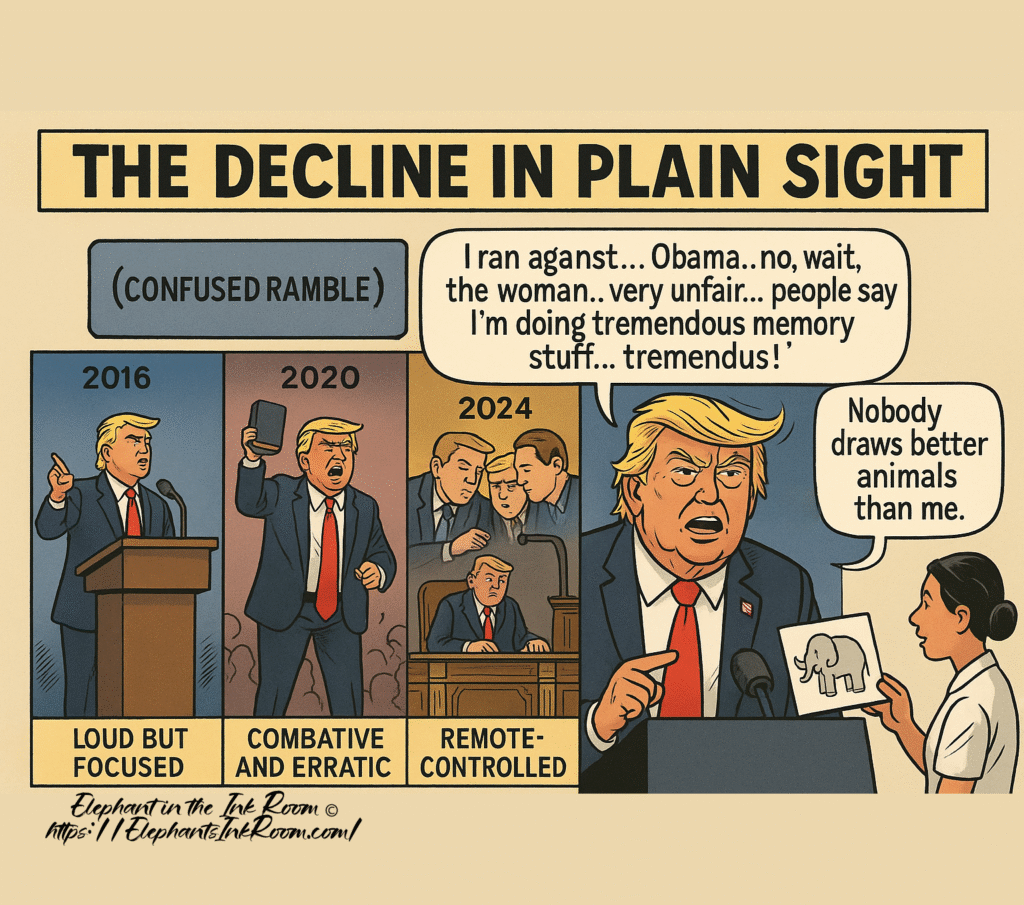


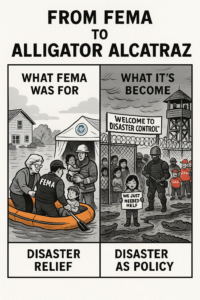
RFK Jr. and the Collapse of Credibility — When Fringe Becomes Dangerous – Part 4
RFK Jr. and the Collapse of Credibility — When Fringe Becomes Dangerous
In a time when science is under siege and public health hinges on trust, Robert F. Kennedy Jr. has chosen to go to war with the very idea of consensus. He frames himself as a whistleblower, a rebel against corrupt institutions—but his rebellion is less about truth and more about traction. And the cost? The safety of Americans who take him at his word.
Kennedy has claimed, without evidence, that both COVID-19 and AIDS were possibly engineered or exaggerated for profit. He’s promoted the long-debunked link between vaccines and autism. He’s suggested that chemicals in the water supply are feminizing boys and harming masculinity. Each claim might be brushed off if he were just another internet crank—but this is a man who ran for President of the United States but became Voodoo Doctor extrodinaire, he became Secretary of the U.S. Department of Health and Human Services. And that makes the danger real.
RFK Jr. is a master of half-truths—statements that contain just enough kernel of reality to confuse the public and just enough innuendo to suggest shadowy forces at work. He constantly positions himself as the last honest man standing, the one voice willing to speak “what others won’t.” But his rhetoric is not grounded in evidence—it’s grounded in performance.
This isn’t an intellectual pursuit. It’s a campaign strategy based on distrust. And it’s working—because distrust is a potent political fuel, especially when people are hurting, confused, and exhausted from years of whiplash-inducing headlines.
But here’s what that strategy is really doing:
It erodes the fragile trust we need during public health emergencies.
It leads people to delay or refuse life-saving vaccines, tests, and treatments.
It undermines legitimate scientists and doctors who are already overburdened and under attack.
RFK Jr. argues he’s just asking questions. But when a public figure with the Kennedy name spreads misinformation in the form of questions, the consequences are no less severe than if they were shouting lies outright.
This isn’t harmless curiosity. It’s weaponized doubt.
And while the public may enjoy the drama, or feel validated by the suspicion, we can’t ignore the end result: Americans will die because of what they didn’t believe—because a trusted name told them not to.
This isn’t theory. It’s already happening.
RFK Jr. is not a doctor. He is not an epidemiologist. He is not an expert in pharmacology, virology, or public health. What he is, is a celebrity with a platform—and that platform is now being used to sow mistrust that costs lives.
And now in a position of power, he is dismatling what took us decades and billions of dollars to accomplish, He will single handly be resposible for the deaths of millions of Americans, many to youmg to make their own decisions.
This isn’t about politics anymore. It’s about the line between skepticism and sabotage.
If Kennedy truly cared about the public, he would amplify evidence—not conspiracy. He would platform facts—not fear. And he would take responsibility for the real-world effects of his words.
Until then, he remains not a public servant—but a public threat.
Share this:
Like this: